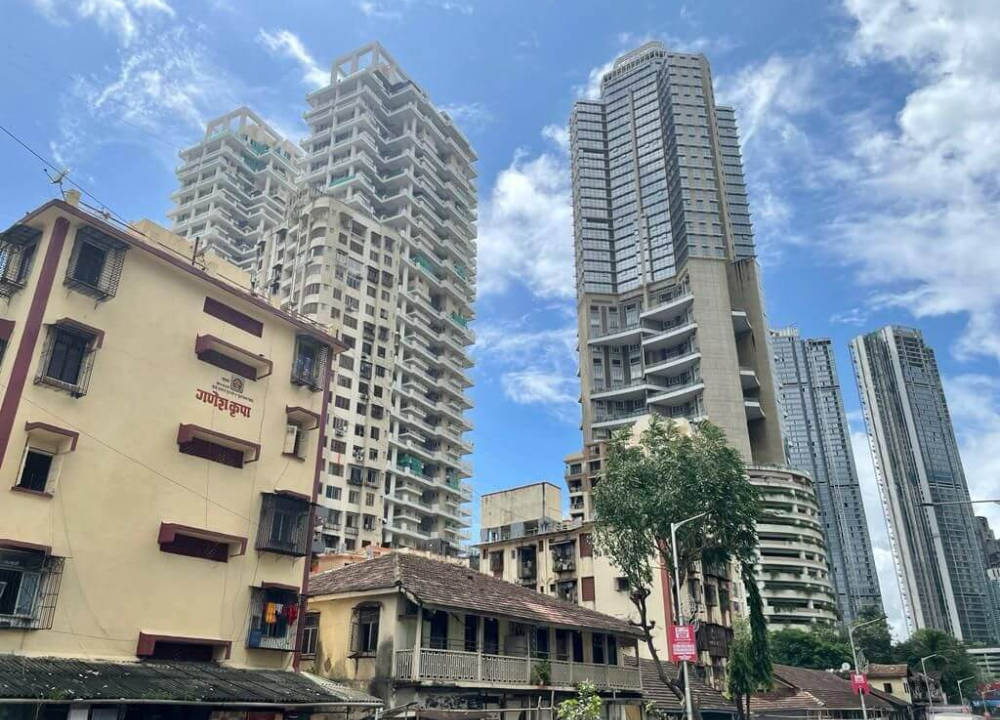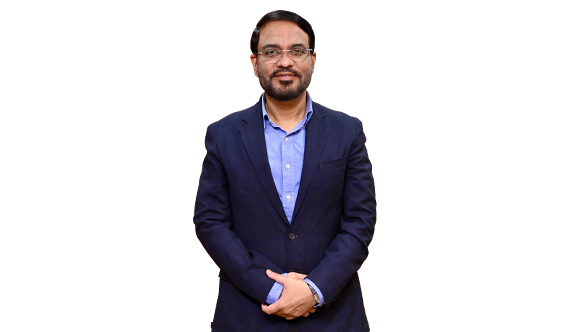Sanjeev Jaiswal’s Vision for Redeveloping Mumbai’s Dilapidated Structures

A Step Towards Progress: Sanjeev Jaiswal’s Vision for Redeveloping Mumbai’s Dilapidated Structures
Urban growth, particularly in a thriving metropolis like Mumbai, is inherently a complex journey. As the city continues to expand, it faces a delicate balancing act between maintaining its rich historical heritage and embracing the future. In this dynamic environment, addressing the decay of older buildings becomes crucial to the city's resilience. Among the many urban redevelopment initiatives currently underway, the redevelopment of Kalyan Bhavan in South Mumbai stands out—not just as a building project but as a powerful example of MHADA’s commitment to improving lives and providing better living spaces for the city's residents.
Located on Kalbadevi Road, Kalyan Bhavan had long been a part of Mumbai’s historical fabric, housing a vibrant community. Over time, however, it began to deteriorate, and by 2023, it was officially declared dilapidated and unsafe. This marked a significant turning point, as the need for redevelopment became undeniable. At this critical juncture, MHADA, under the guidance of Sanjeev Jaiswal, took swift action to ensure the safety and well-being of the building's residents, demonstrating a deep commitment to both urban renewal and community welfare.
A Swift Response to a Growing Need
The issue of revitalizing aging infrastructure in Mumbai is never straightforward. It requires more than just rebuilding structures—it involves protecting lives, preserving a community’s legacy, and ensuring that the redevelopment process addresses the needs of the residents. In May 2023, MHADA took prompt action by issuing a notice to the landlord, requesting a redevelopment proposal within six months. This proactive approach reflected MHADA’s focus on addressing the city's housing crisis while improving the quality of life for residents.
By June 2024, the landlord had submitted the necessary proposal, and MHADA issued a Letter of Intent (LoI) to initiate the redevelopment process. At this stage, it appeared that the project was on track for smooth execution, signalling a positive shift for the residents and the city as a whole.
The Tenants’ Perspective: Upholding Resident Rights
Urban redevelopment often brings forth various challenges, especially concerning the rights and concerns of existing tenants. In the case of Kalyan Bhavan, tenants raised important concerns regarding delays in the redevelopment process. They argued that the landlord had failed to meet the legal deadline for submitting the redevelopment proposal and expressed their desire for a more inclusive approach.
Thanks to a 2022 amendment to the MHADA Act, which grants tenants the right to take charge of redevelopment if the landlord fails to meet deadlines, the tenants’ voices gained further significance. Their plea for a review of the landlord’s proposal led to the matter being taken to the Bombay High Court in November 2024, where the court ruled in favour of considering the tenants’ proposal as well. This ruling underscored the importance of ensuring that all parties—tenants, landlords, and developers—are part of the redevelopment conversation.
MHADA’s Commitment to Fairness and Timely Solutions
MHADA, under Sanjeev Jaiswal’s leadership, has consistently prioritized fairness and transparency in its dealings. In line with these principles, the authority ensured that the redevelopment of Kalyan Bhavan remained inclusive and legally sound. The court’s directive in January 2025, instructing MHADA to finalize the redevelopment plan within 15 days, marked a significant moment in this journey. It reflected the judiciary’s recognition of MHADA’s efforts to create a solution that benefited both tenants and landlords.
The entire process emphasized the importance of acting swiftly while remaining considerate of residents' needs. MHADA’s unwavering focus was not only on completing the redevelopment project but also on ensuring that it adhered to legal norms, upheld tenants’ rights, and fostered a sense of ownership and participation among the people involved.
Progress Amidst Challenges: Moving Forward with Redevelopment
Despite the legal hurdles, MHADA proceeded with the demolition of Kalyan Bhavan, demonstrating its commitment to the redevelopment process. This ongoing work is not just about physical transformation—it represents a revitalization for the entire community. By taking these necessary steps, MHADA is leading the charge in ensuring that residents are provided with secure and sustainable living spaces.
This proactive and transparent approach to urban redevelopment exemplifies MHADA’s philosophy under the leadership of Sanjeev Jaiswal—to not only address housing issues but also foster communities that thrive. It’s a demonstration of responsible governance that serves the people’s needs while shaping the future of the city.
The Road Ahead: A Model for Modern Urban Development
As Kalyan Bhavan’s redevelopment continues, it stands as a blueprint for future projects throughout Mumbai. MHADA’s strategic approach to urban planning emphasizes not just the creation of physical structures, but the nurturing of communities. With the continued leadership of Sanjeev Jaiswal, MHADA is ensuring that redevelopment projects are aligned with the city’s needs, helping to shape a future that balances modernity and sustainability.
The redevelopment of Kalyan Bhavan serves as a reminder that urban growth cannot be measured solely by the number of buildings erected; it must be measured by the quality of life it offers to its residents. MHADA’s efforts in this regard are exemplary—demonstrating that with thoughtful planning and inclusive governance, urban renewal can benefit everyone, not just a select few.
Conclusion: Towards a Greener, More Inclusive Mumbai
The redevelopment of Kalyan Bhavan reflects MHADA’s commitment to a sustainable future for Mumbai—one where urban growth and environmental preservation go hand in hand. Under Sanjeev Jaiswal’s leadership, MHADA has shown that urban development can be efficient, inclusive, and focused on the long-term well-being of residents.
As the project progresses, it will not only provide new homes but also contribute to Mumbai’s transformation into a more inclusive, modern, and sustainable city. Together, we can look forward to a future where Mumbai’s urban expansion respects the needs of its people, preserving its history while making space for the future.
Let’s continue building a better, brighter, and greener Mumbai—together.

.png)

